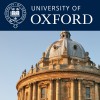Dr. Reed Criddle, ‘Collective oral tradition in the musical recitation of the Medicine Buddha Sūtra’
Dr. Reed Criddle
Director of Choral Activities and Associate Professor of Music, Department of Music, Utah Valley University
‘Collective oral tradition in the musical recitation of the Medicine Buddha Sūtra’
Every year thousands of Buddhists in the Mahāyāna tradition gather in Taiwanese temples for The Liberation Rite of Water and Land (藥師瑠璃光如來本願功德經). This weeklong ceremony is centered around a highly-structured program of nearly continuous chanting. Throughout the day there are eight shrine halls presenting independent liturgies, all chanted simultaneously. These locations are divided into two separate categories: the Inner Shrine (內壇) and the Outer Shrine (外壇). In the evening, the entire assembly combines for mass chanting. On the final day, the assembly’s recitation focuses on a boat-burning ritual, metaphorically sending the dead to heaven.
From his perspective as an ethnomusicologist and choral conductor, Dr. Reed Criddle has researched the collective oral traditions integral to The Liberation Rite of Water and Land at Fo Guang Shan (佛光山) monastery in Taiwan. At the invitation of the Fo Guang Shan Institute for Humanistic Buddhism, he has recorded and transcribed chanting of The Medicine Buddha Service (藥師法會) and has produced a new English translation of its core text, The Sutra on the Vows and Merits of the Medicine Master of Radiant Lapis Lazuli (藥師瑠璃光如來本願功德經; Sanskrit: Bhaiṣajya-guru-vaiḍūrya-prabhā-rāja Sūtra). This paper provides a framework for the textual and musical elements inherent in the Medicine Buddha Service and contextualizes it within the overarching Water and Land Ceremony. Topics include chant leadership hierarchies; musical form, meter, rhythm, pitch, and harmony; individuality through ornamentation; and indeterminacy or impermanence through improvisation.




